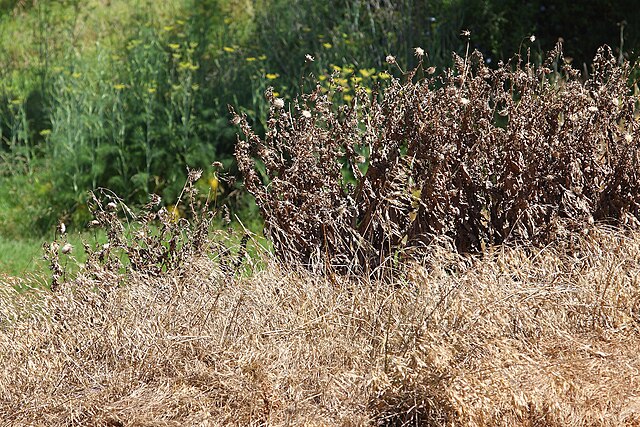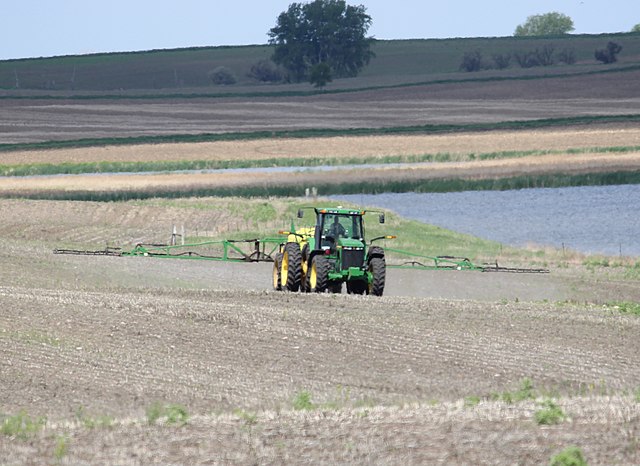Glyphosate is a broad-spectrum systemic herbicide and crop desiccant. It is an organophosphorus compound, specifically a phosphonate, which acts by inhibiting the plant enzyme 5-enolpyruvylshikimate-3-phosphate synthase (EPSP). It is used to kill weeds, especially annual broadleaf weeds and grasses that compete with crops. Its herbicidal effectiveness was discovered by Monsanto chemist John E. Franz in 1970. Monsanto brought it to market for agricultural use in 1974 under the trade name Roundup. Monsanto's last commercially relevant United States patent expired in 2000.
Glyphosate used as an alternative to mowing in an apple orchard in Ciardes, Italy
Landscaping company in Oklahoma applying a weed control product that contains glyphosate
Palmer amaranth (Amaranthus palmeri)
Horseweed
Herbicides, also commonly known as weed killers, are substances used to control undesired plants, also known as weeds. Selective herbicides control specific weed species while leaving the desired crop relatively unharmed, while non-selective herbicides kill plants indiscriminately. The combined effects of herbicides, nitrogen fertilizer, and improved cultivars has increased yields of major crops by 3x to 6x from 1900 to 2000.
A field after application of a herbicide
Weeds controlled with herbicide
Herbicides being sprayed from the spray arms of a tractor in North Dakota.
Handicapped children in Vietnam, most of them victims of Agent Orange, 2004








